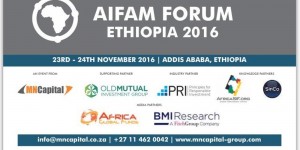
The Africa Investment Funds and Asset Management (AIFAM Forum) convenes regional capital owners (pensions, sovereign funds, insurers, central banks etc.), fund managers, and investment professionals from the continent to meet with institutional investors and other stakeholders who are interested in opportunities on the continent. The meeting is an invitation-only session on developing viable financial products/structures that can increase the availability of capital to invest in the continent’s infrastructure, deepen capital markets innovation and mainstream investing alternative asset classes.
The major goal of this Training of Trainers (ToT) workshop is to create a large pool of experts in the area of gender-responsive economic policy management. This pool of experts will be equipped to act as trainers for the two-week course on gender-responsive economic policy management organized for middle and senior African policymakers and which takes place on an annual basis at IDEP’s headquarters in Dakar, Senegal. Successful applicants may also be considered to be included in IDEP’s roster of gender experts.
The course aims at providing training on agricultural policy with a view to strengthening and/or renewing the knowledge and capacity of African policy makers, including senior managers, negotiators, advisors, planners and analysts, to meet the core challenges of growing the agricultural sector as a central engine of national economic development and social policy. In doing so, the course will expose participants not only to the current state of knowledge and the comparative lessons which are available to Africa, but also some of the best practices that serve as pertinent examples of how an integrated and comprehensive agricultural policy regime has been used to promote economic transformation and social well-being.
The course will serve the policy concerns which most African governments share of, among other things, improving agricultural output and productivity, nurturing the linkages between agriculture and other economic sectors, increasing national food security, combating poverty, expanding employment, promoting environmental sustainability, and enhancing sustainable rural livelihoods, including gender equality. These are concerns that have also been embraced by the African Union, the Regional Economic Communities (RECs), the Economic Commission for Africa (ECA), the African Development Bank (AfDB), and NEPAD.

